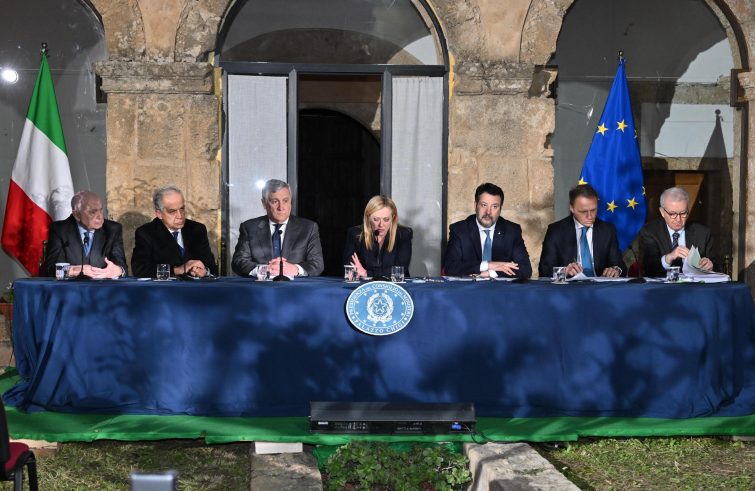
The Council of Ministers has approved a new Decree-Law on immigration.
The cabinet meeting took place in the town of Cutro, in the Calabria region – an obvious attempt to make up for the absence of government officials in the days following the deadly shipwreck – marked by the prompt and highly significant visit of Italian President Mattarella. Thus, at the concurrent EU Interior Ministers’ meeting in Brussels regarding the very same issue of immigration, Italy was represented by the Minister’s Under Secretary.
Follows an overview of the main points of the Decree
as presented in the government’s communiqué, pending the publication of the actual text in the Official Journal.
The new Decree-Law envisages the offense of “death or injury as a result of illegal immigration-related crimes”,
with penalties ranging from 10 to 20 years in prison for severe or very severe injury to one or more persons; from 15 to 24 years for causing the death of one person; and from 20 to 30 years for the death of several persons.
The Decree abrogates the Justice of the Peace validation requirement for enforcing deportation orders following conviction.
As for migration inflows,
the quota for non-EU citizens who can enter Italy for employment, will be no longer limited to one year and will be extended for a three-year period (2023-2025) by Prime Minister’s Decree,
after consulting the relevant parliamentary committees. Preferential quotas – reads the Government’s Note – will involve workers from countries that promote public awareness campaigns on personal safety risks posed by involvement in human trafficking and migrant smuggling. Extra-quota admissions are planned for migrants who have successfully completed vocational training courses in their country of origin that are recognized by the Italian Ministry of Labour.
Employment procedures for non-EU nationals working for Italian companies are likewise simplified, while the procedure for issuing a nulla osta for subordinate work, including for seasonal workers, will be fast-tracked.
Renewals of residence permits granted for open-ended work, self-employment or family reunification will have a maximum duration of three years, as opposed to two years as is the case today.
The Decree enshrines norms concerning serious incidents of non-compliance of government centres for the reception or detention of migrants, thereby placed under temporary administration.
The communiqué likewise refers to the identification, acquisition or enlargement of controversial Detention Centres for Repatriation, which will thus be upgraded, with the option of derogating from the Public Procurement Code, thus facilitating faster procedures, with due compliance with the provisions set out in the Anti-Mafia and Prevention Measures Regulations.
With regard to special protection permits, which have shown to be a very important tool for the protection of persons who have not yet been granted refugee status, there is a possibility that they will be subject to restrictions
but only the final text published in the Official Journal will detail under which conditions. The communique issued by Palazzo Chigi only says that “special protection is being more accurately defined in order to avoid interpretations that might inappropriately broaden its scope.”












